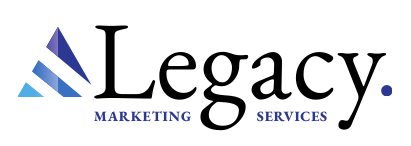In the ever-evolving world of digital marketing, businesses are consistently faced with a common question: should they invest in Pay-Per-Click (PPC) advertising or Search Engine Optimization (SEO) for better return on investment (ROI)? In 2025, with new algorithms, AI capabilities, and user privacy updates reshaping the landscape, understanding the pros, cons, and ROI potential of each method has become more crucial than ever.
Understanding PPC in 2025
Pay-Per-Click advertising gives marketers the ability to place ads on search engines and other platforms while paying only when users click on their ads. In 2025, PPC has become more data-driven with enhancements from machine learning and better user targeting. Platforms like Google Ads and Microsoft Advertising now offer hyper-granular targeting based on AI behavior predictions, geography, and even voice-search trends.
Advantages of PPC
- Instant Visibility: Ads appear at the top of search results, offering businesses rapid exposure.
- Highly Targeted: Advanced targeting options help businesses reach the right users at the right time.
- Scalable: Budgets can be scaled up or down quickly based on performance metrics.
PPC Challenges
- Cost Increases: CPC rates have risen due to increasing competition and limited ad space.
- Short-Term Sustenance: Traffic drops as soon as ad spend stops.
- Ad Fatigue: Users may grow weary of seeing repetitive ads, leading to decreasing performance over time.
Understanding SEO in 2025
Search Engine Optimization focuses on improving organic rankings through quality content, keyword optimization, and backlink strategy. In 2025, SEO is heavily influenced by semantic search, user experience (UX), and mobile-first indexing. AI-powered search engines like Google place emphasis on E-E-A-T (Experience, Expertise, Authority, Trustworthiness). SEO practices have evolved to include optimizing for voice search, video content, and AI-generated content audits.
Advantages of SEO
- Long-Term Investment: Organic traffic can last indefinitely with proper upkeep.
- Credibility and Trust: Users often trust organic results over paid ads.
- Cost Efficiency: Although it takes time to yield results, the ongoing cost is generally lower compared to PPC.
SEO Challenges
- Slow Results: SEO is a long game, often taking months to see significant ROI.
- Algorithm Volatility: Search engine updates can drastically affect rankings.
- High Competition: Popular keywords are saturated with top-ranking domains.
PPC vs SEO: Which Delivers Better ROI in 2025?
The answer largely depends on your business objectives, timeframe, and budget. In 2025, both PPC and SEO serve unique functions in a comprehensive marketing strategy. However, when measuring pure ROI, recent trends show that organic SEO efforts tend to yield better returns in the long run, while PPC offers quicker wins.
ROI Comparison
| Aspect | PPC | SEO |
|---|---|---|
| Initial Cost | High | Moderate |
| Time to Results | Immediate | 3–6 months |
| ROI Over Time | Quick but Plateaus | Slow but Increasing |
| Traffic Sustainability | Ends with Budget | Long-term |
| Trust and Credibility | Lower | Higher |
Industry-Specific ROI Considerations
For industries with high customer lifetime value (CLTV) such as SaaS or B2B, SEO brings better value in the long term by building authority and trust. Meanwhile, ecommerce and local businesses may benefit from combining both strategies—using PPC to drive quick sales and SEO to build lasting visibility.
Combining PPC and SEO for Optimal ROI
In 2025, the most successful digital marketers are not choosing between PPC and SEO—they’re integrating both:
- Use PPC data to inform SEO strategies, such as identifying high-converting keywords.
- Leverage SEO content within PPC landing pages to improve Quality Score and reduce CPC.
- Run PPC campaigns to test new markets or product offerings before committing to long-term SEO plans.
Conclusion
In 2025, ROI is no longer just about which channel performs better—it’s about smarter integration. SEO generally offers higher ROI over the long term due to sustainability and trust, while PPC offers speed and scalability. The key is evaluating your business goals, budget, and timelines, then crafting a strategy that leverages the strengths of both channels for maximum impact.

